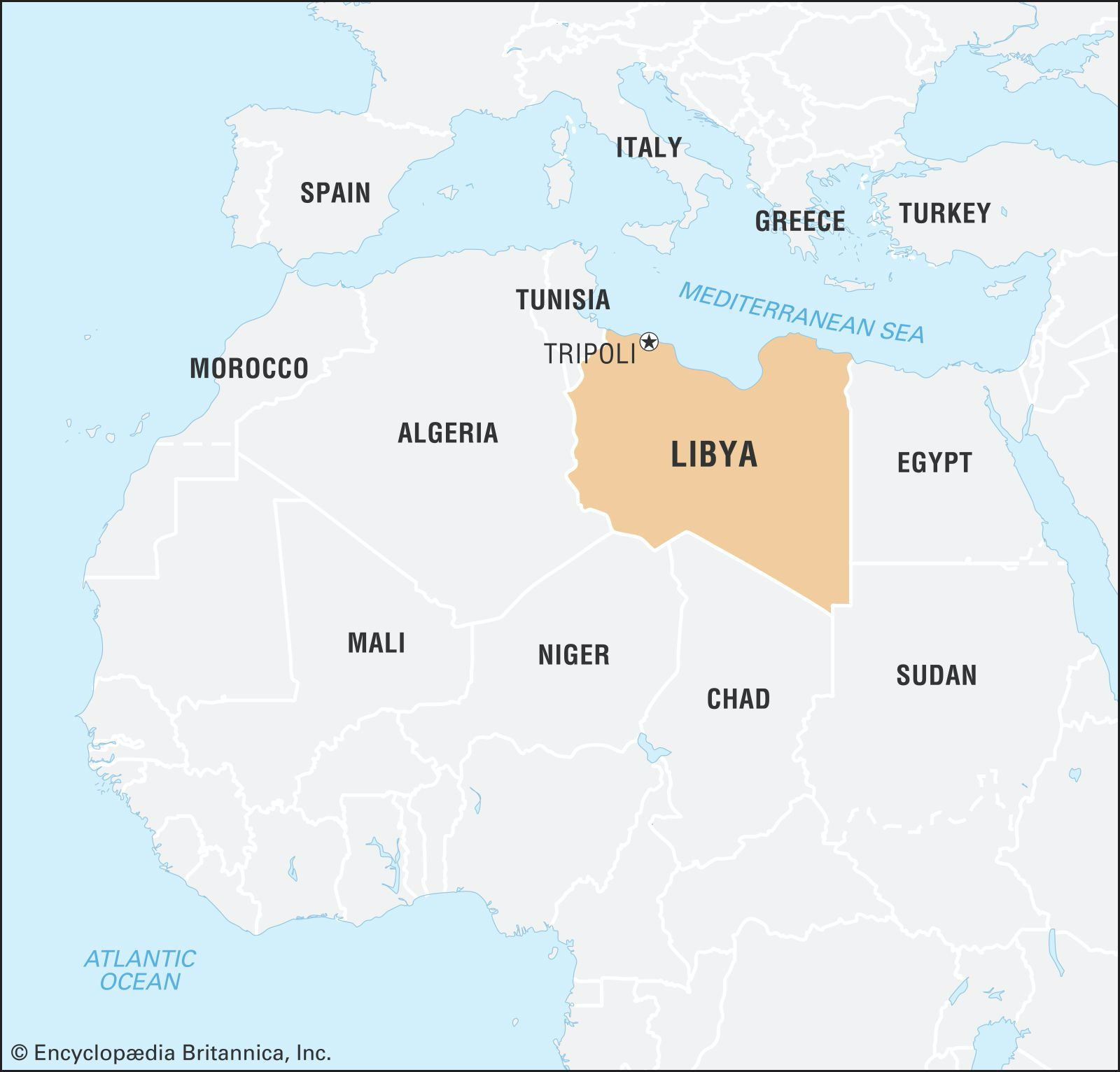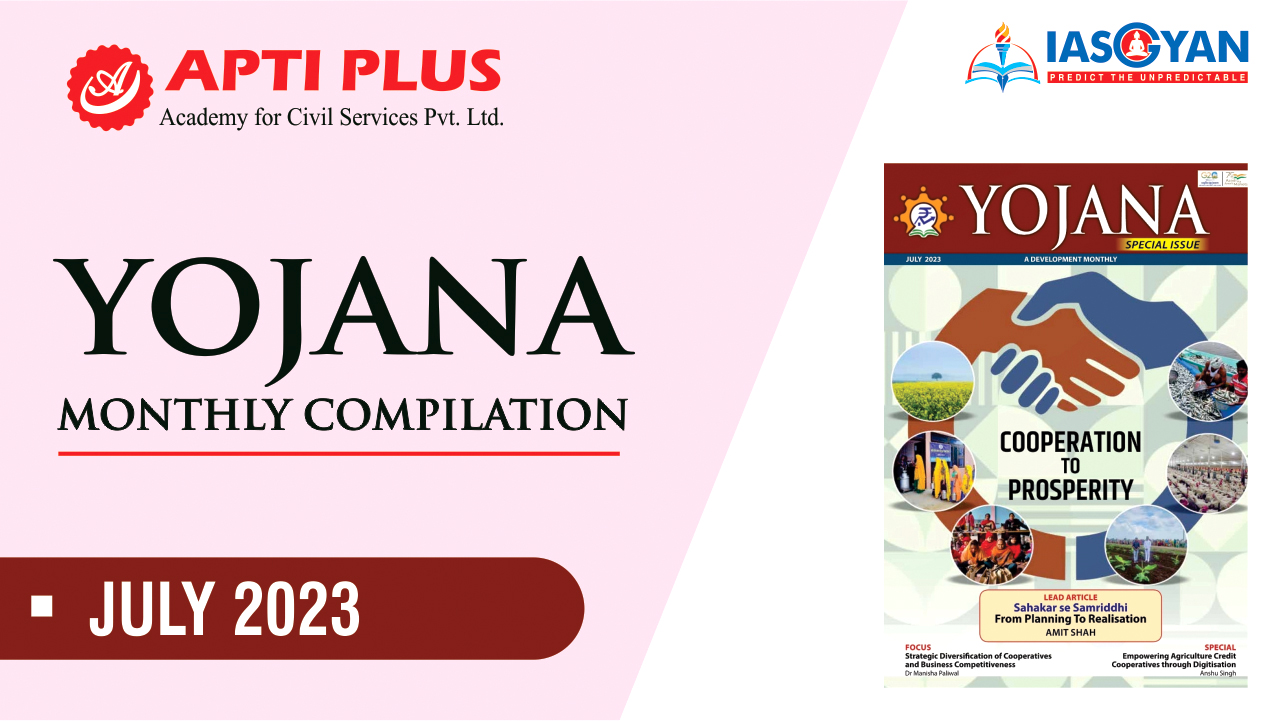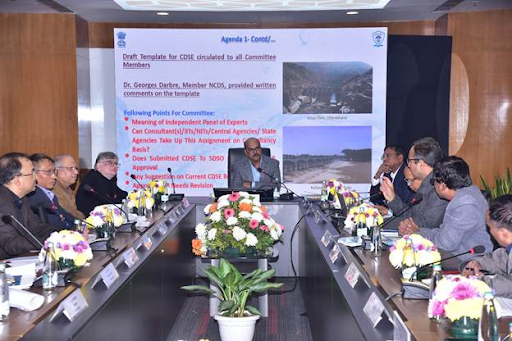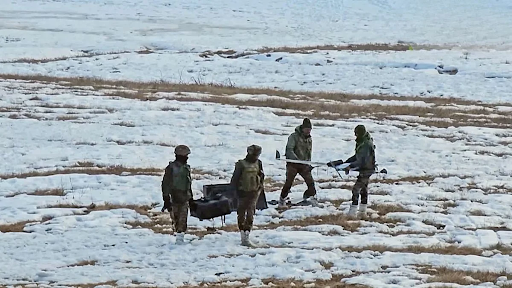Description

Disclaimer: Copyright infringement not intended.
Context
The political controversy arising from the meeting between Libya's Foreign Minister Najla Mangoush and Israeli Foreign Minister Eli Cohen.
Details
- Libyan Prime Minister sacks Foreign Minister Najla Mangoush over a meeting with Israeli Foreign Minister Eli Cohen.
- The meeting triggers protests in various Libyan cities and fuels internal political tensions.
The Meeting and its Controversy
- Mangoush meets Cohen in Rome, claiming it was unplanned and informal.
- Israeli official contradicts, stating the meeting was approved at the highest levels in Libya and lasted two hours.
- Libya does not formally recognize Israel; the meeting contradicts Libyan sentiment supporting Palestinian cause for an independent state.
Impact on Political Crisis
- The meeting adds to Libya's internal political crisis.
- Critics of Prime Minister Abdulhamid al-Dbeibah seized on the controversy to question his leadership amid ongoing internal challenges.
- Dbeibah's interim government, in office since 2021, faces resistance and calls for a unified administration for national elections.
Protests and Response
- Demonstrations outside Libya's Foreign Ministry cause damage, protests in other parts of Tripoli and cities.
- Burning tires block roads in Tripoli, Palestinian flags raised in Benghazi.
- Mangoush's office attempts to clarify, stating the meeting was unplanned during her encounter with Italian Foreign Minister Antonio Tajani.
Geo-Political Implications
- Libya's push for stronger international ties includes Israel and the UAE.
- Israel has normalized relations with Arab states through the "Abraham Accords" brokered by the United States.
- Dbeibah's government seeks international support, fearing weakening backing without such ties.
Parliamentary Response and Armed Faction Dynamics
- Libya's eastern-based parliament questions the meeting; Tripoli-based Presidency Council seeks clarification.
- Armed factions' actions against Dbeibah monitored post-Tripoli fighting.
- Diplomacy targets national elections to resolve internal conflicts.
International Players and Italy's Involvement
- A UN-backed process installed Dbeibah's Government of National Unity (GNU).
- Italy, with interests in Libya, hosts the meeting, aiming to raise its diplomatic profile.
- Italy's involvement causes controversy and raises questions about international backing for Dbeibah.

About Libya
- Libya is a country located in North Africa, bordered by the Mediterranean Sea to the north.
- It is known for its rich history, diverse culture, and strategic geographical location.
Geography and Borders
- Libya shares its borders with several countries: Egypt to the east, Sudan to the southeast, Chad and Niger to the south, Algeria to the west, and Tunisia to the northwest.
- Its coastline along the Mediterranean Sea is significant, and many major cities are situated along it.
Capital and Major Cities
- The capital city of Libya is Tripoli, which is located on the country's northwestern coast.
- Other major cities include Benghazi, Misrata, and Sabha.
Historical Significance
- Libya has a history dating back to ancient times, with notable civilizations like the Phoenicians, Greeks, Romans, and Byzantines having had an influence on the region.
- The city of Leptis Magna, a Roman archaeological site, is a UNESCO World Heritage Site and a testament to Libya's historical importance.
Colonial Influence and Independence
- Libya was under Ottoman rule for centuries and then became an Italian colony in the early 20th century.
- After World War II, Libya gained independence in 1951 and became a monarchy under King Idris.
Gaddafi Era
- In 1969, Muammar Gaddafi led a coup that ousted King Idris and established a socialist government.
- Gaddafi's rule was characterized by authoritarianism, unconventional policies, and control over the country's vast oil resources.
- The country went through periods of international isolation and conflict during his rule.
Arab Spring and Civil Unrest
- In 2011, Libya became a focal point of the Arab Spring uprisings.
- Protests against Gaddafi's regime led to a violent conflict, with Western military intervention.
- Gaddafi was eventually captured and killed, leading to a power vacuum and ongoing instability.
Post-Gaddafi Challenges
- After Gaddafi's fall, Libya struggled with governance issues, the rise of militias, and tribal divisions.
- The country essentially split into multiple factions, with the internationally recognized Government of National Accord (GNA) in the west and the Libyan National Army (LNA) led by General Khalifa Haftar in the east.
Economy and Oil
- Libya possesses significant oil reserves, making oil exports a crucial component of its economy.
- However, political instability and conflicts have often disrupted oil production and exports.
Cultural Diversity
- Libya is home to diverse ethnic and tribal groups, including Arab-Berber populations.
- Its cultural heritage includes traditional music, art, and festivals that reflect its history and regional influences.
|
PRACTICE QUESTION
Q) Consider the following statements regarding Libya:
- After Libya gained it became a democratic republic.
- Libya is bordered by 7 countries.
Select the correct statements using the codes below:
(a)1 only
(b)2 only
(c)Both 1 and 2
(d)Neither 1 nor 2
Answer: (d)
|

https://epaper.thehindu.com/ccidist-ws/th/th_delhi/issues/49662/OPS/GA7BM8L0Q.1.png?cropFromPage=true










